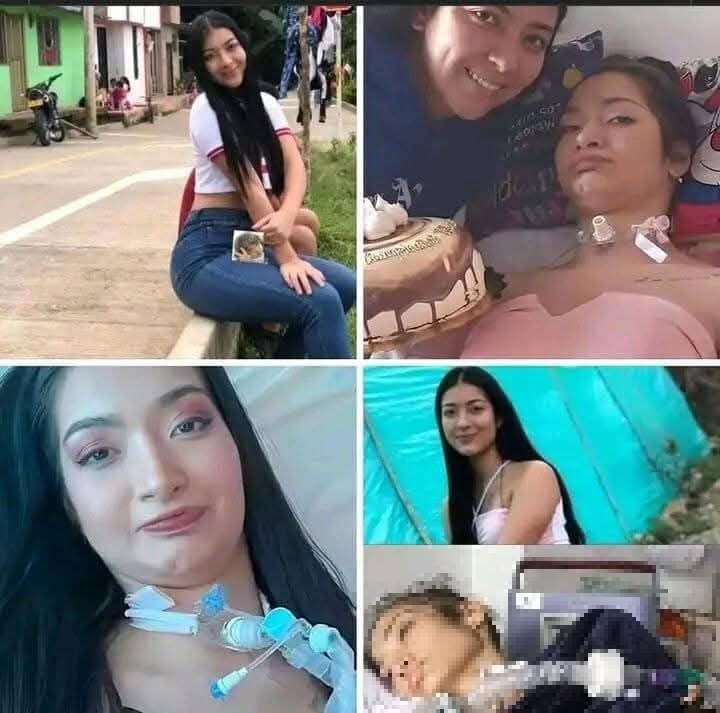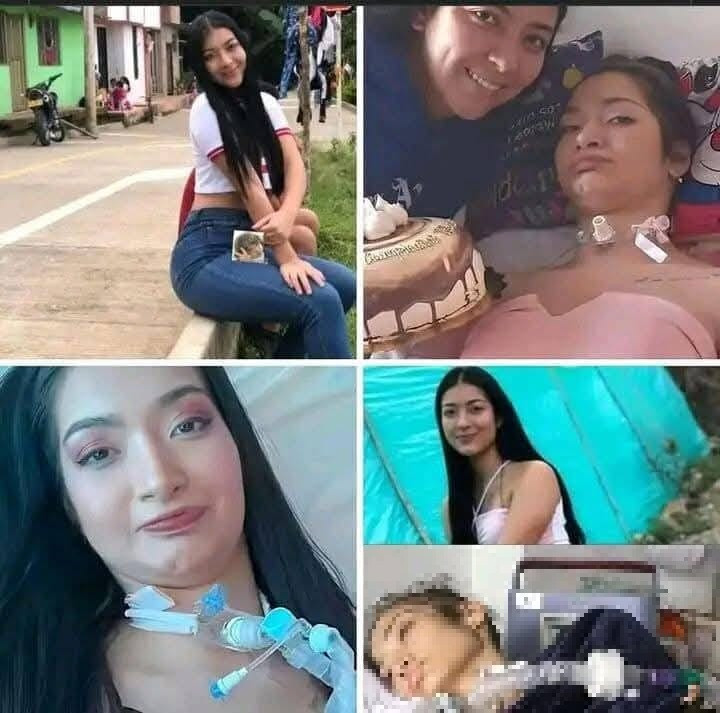The Tragic Story of Erika Morales: A Symbol of the Right to Die with Dignity
Erika Morales, a 20-year-old woman from Los Andres, Sotomayo (Nariño), Colombia, has tragically passed away after requesting euthanasia. This heart-wrenching decision to end her life stemmed from the devastating consequences of a brutal attack that left her quadriplegic at the age of just 17. Her story has not only captured public attention but has also sparked widespread discussions about the right to die with dignity, the intricacies of the healthcare system, and the profound emotional toll such decisions impose on families. Through Erika’s narrative, we confront the delicate balance between life, suffering, and the ethical debates surrounding assisted dying.
The Events Leading to Euthanasia
In August 2021, a routine night out with friends at a bar in Pasto changed Erika’s life irrevocably. A violent confrontation erupted, resulting in her being struck with a whiskey bottle in the restroom, inflicting severe injuries that led to her quadriplegia. This traumatic incident not only altered the trajectory of her life but also plunged her into an abyss of physical and emotional suffering that is difficult for many to comprehend. Following the attack, Erika was left fighting for her life in critical condition, and after months of medical interventions, she faced an uncertain future. The loss of her independence was a devastating blow, rendering her fully reliant on her family for daily activities. This shift not only affected Erika but also placed immense emotional strain on her family, especially her sister, Tatiana Morales, who found herself navigating an unpredictable and heartbreaking journey alongside her sister.
The Struggles for Dignity and Medical Care
Erika’s life became a cycle of relentless physical pain and emotional distress. As she grappled with her new reality, her plight became a platform for her to advocate for euthanasia, aiming to escape the suffering that had become her daily existence. However, the path to obtaining this choice was riddled with challenges. Initially, her healthcare provider, EPS Emssanar, dismissed her requests for euthanasia, asserting that her medical condition did not meet the necessary criteria outlined by Colombian law. This bureaucratic denial not only intensified her suffering but also galvanized her family to amplify her voice. They took to social media, sharing Erika’s story, and rallying public support. This digital campaign highlighted the broader issues faced by individuals seeking humane options at the end of life, illustrating the intersection of personal tragedy and societal advocacy.

A Family’s Heartbreaking Decision
After weeks of advocacy and public outcry, the health authority finally approved Erika’s request for euthanasia on February 22, 2025. This decision brought a complex mix of relief and sorrow within her family. Tatiana Morales took to social media to express her conflicting emotions about her sister’s choice, illustrating the intricate web of love, pain, and loss that families often endure in such situations. “I want to express that there are many mixed feelings. It’s not easy to lose a sister, my only sister,” she shared, encapsulating the emotional turmoil that underlies decisions of this magnitude. Tragically, Erika’s last wish was fulfilled on March 1, 2025, when her family confirmed her passing, a moment that marked the end of her suffering but the beginning of a profound grief for those she left behind.
A Symbol for the Right to Die
Erika Morales’s painful journey has positioned her as a poignant symbol for the right to die with dignity. Her case has shed light on the urgent issues surrounding euthanasia laws in Colombia and the deep anguish experienced by individuals living with severe disabilities. The overwhelming public response to her story has sparked a renewed call for improved healthcare policies that respect individual rights and provide compassionate options for those in suffering. Advocates for euthanasia have utilized her narrative to emphasize the need for systemic changes, calling for more humane policies that allow individuals to make choices regarding their end-of-life care. Erika’s story serves as a powerful reminder of the necessity for empathy in healthcare practices, highlighting how critical it is to foster an environment that values dignity in both life and death.
Ongoing Conversations and Future Implications
In the wake of Erika Morales’s passing, the discussions surrounding her story continue to reverberate across social media platforms and public forums. Advocates for euthanasia stress the importance of establishing clearer guidelines that enable individuals in similar circumstances to bypass the bureaucratic challenges that Erika faced. The emotional burden on families supporting loved ones in dire situations cannot be underestimated, a sentiment echoed in Tatiana Morales’s heartfelt messages. In her quest for justice for her sister, Tatiana has become an impassioned voice for change, emphasizing the significance of mental health support for families navigating these complex emotional landscapes. The advocacy for better end-of-life care policies is not just about legal reform; it is also about ensuring families have the necessary resources to cope with the emotional toll of such decisions.
In conclusion, the tragic story of Erika Morales transcends her personal struggle; it serves as a catalyst for vital discussions about healthcare rights, the intricate dynamics within families, and the emotional complexities surrounding the choice of euthanasia. As society grapples with these difficult questions, Erika’s legacy may inspire a reevaluation of the policies governing end-of-life care, ultimately reshaping how we regard individual rights to make profound decisions about their lives and bodies. Her story resonates deeply, reminding us of the need for compassion and understanding in a world where suffering can be both profound and, at times, inescapable. The conversations ignited by Erika’s journey are far from over; they hold the potential to effect real change in how we approach the delicate balance of life, suffering, and dignity.














